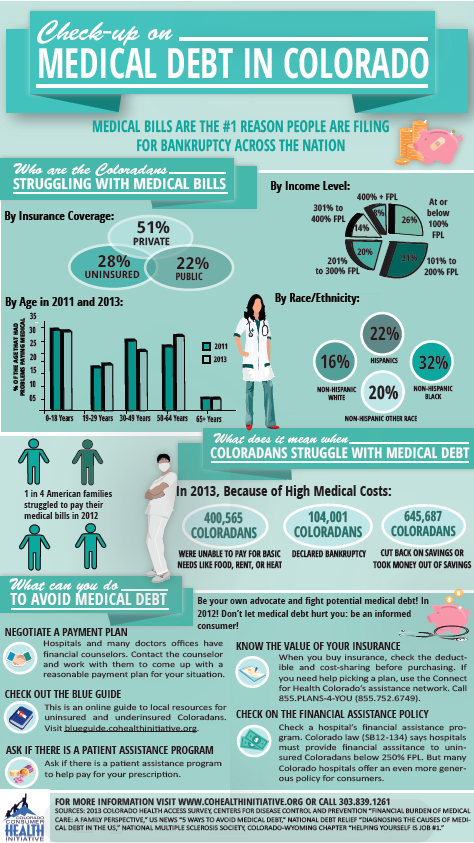In 2012, over one in four families experienced financial burdens from medical care in the United States. One in ten families had medical bills that they were unable to pay at all. This means that families are forced to forgo basic needs such as heating bills, rent, visiting doctors, or filling prescriptions. Medical debt negatively afflicts families and individuals in every walk of life.
According to the Colorado Health Access Survey (CHAS), approximately one in five Coloradans struggled to pay medical bills in 2013. With the leadership of Senator Aguilar, CCHI, the Colorado Hospital Association, Colorado Center on Law and Policy and several other partners have been working to relieve unmanageable medical bills for vulnerable individuals and families by increasing transparency and setting standards for financial assistance policies in hospitals. In 2012, the Colorado General Assembly passed a bipartisan bill, SB12-134 (Hospital Payment Assistance Program), to ensure that patients are made aware of the financial assistance available at Colorado hospitals and to set appropriate limits on the amount low-income uninsured Coloradans can be charged for services. However while some people have benefitted greatly from the law, there is variability in how the hospitals have implemented SB12-134. Hospitals and patients alike have expressed concern that the expectations around hospitals’ financial assistance policies are not clear.
SB14-050 (Financial Assistance in Colorado Hospitals) addresses these challenges by establishing procedures to develop clear standards and evaluate hospital compliance with the law. CCHI is excited to continue supporting increased access and transparency of financial assistance with this bill and reduce medical debt in Colorado. SB14-050 is just one piece of the puzzle, but is an important way in which hospitals and consumer advocacy groups try to help consumers stay out of debt.
See the info graphic below for more information on medical debt in Colorado

